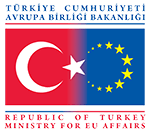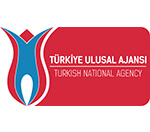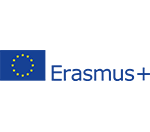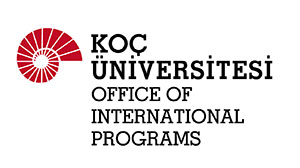Koç University strives to be a center of excellence, one that succeeds in providing a world-class education to its students, creating new knowledge via the research of its faculty, applying the acquired knowledge for the benefit of society, and equipping its students with the highest sense of ethics, social responsibility and good citizenship. In today’s fast changing world, business organizations demand for well-equipped team members who create and lead change. New graduates are required to be ready for the challenging environment by developing their life skills during their university years. KU aims to build a better future for KU students and thus prefers to invest in youth for them to develop academic and life skills via programs and projects offered such as Erasmus.
Having a clear, shared and flexible strategic document to coordinate all efforts amongst academic and administrative units and other stakeholders (students, alumni, donors, and government) is the main purpose of KU’s Strategic Internationalization Plan launched in 2017. This coordinated effort has been focusing on the following five strategic initiatives;
- Internationally experienced students: support and increase all activities that allow our undergraduate students to have a meaningful international experience by the time they graduate.
- International students integrated into campus life: improve services and programs that support international undergraduate and graduate students on campus and after graduation.
- An internationally diverse and talented student body: attract a diverse body of highly qualified international students to our Bachelor, Master and Doctoral programs.
- High impact research funded by international sources: increase in the number and scope of competitive grants awarded to individual faculty members and research groups or in consortia with leading groups abroad and the visibility of our university’s research internationally
- Better reporting, monitoring and governance of internationalization: improve our collection of data and indicators to measure performance
Koç University works towards adopting a “Comprehensive Internationalization Strategy” which is a commitment to instill international and comparative perspectives into the teaching, research, and service missions of higher education. Comprehensive Internationalization shapes institutional spirit and values and touches the entire higher education enterprise. Koç University believes that the process should be embraced by institutional leadership, faculty, students, and all academic/administrative service and support units. Comprehensive internationalization not only impacts all of the campus life but the institution’s external frames of reference, partnerships, and relations.
In an effort to move in line with the philosophy of Comprehensive Internationalization Strategy, Koç University adopts an inclusive approach towards internationalization as further explained below:
Internationalization of Education: Koç University puts a strong emphasis on training graduates with strong international skills necessary to serve as global leaders, who have the ability to understand different cultures, to conduct discussions and negotiations in English, and have practically applicable expertise.
Internationalization of Research: Koç University believes that a university should achieve international competitiveness in as many of its research activities as possible, and by doing so this will lead to growing international collaborative working. Koç University’s international research participation and collaboration, the quantity and quality in projects, citations and impact have also grown considerably over the past five years. Koç University faculty works in collaboration with national and international public and private institutions (universities, European Commission, public agencies, research and development agencies, business world, and industrial corporations) in over 100 research projects each year.
Internationalization of Students & Student Body: Koç University strongly believes that students should be exposed to an international education and benefit from extracurricular activities and work opportunities that will help them to prepare for an international career whether in Türkiye or abroad, and to understand and make sense of an interconnected world and its benefits and challenges. KU strives to achieve the internationalization of students and student body via exposing students to the international environment and education style via outbound mobility programs, short-term winter/summer programs, internship and service learning programs at home and abroad, international projects, and also increasing the number of international students at KU via inbound mobility programs and full-time international student recruitment. While this component helps to increase the representation of various countries and cultures at KU, it also helps to internationalize the students who are not active in study abroad programs.
Internationalization of Faculty & Administrative Staff: KU believes that internationalization of faculty and staff members plays a crucial role in the internationalization of the whole university, as they are one of the key parts of the university community. While KU aims to recruit the best staff for academic and administrative work who have global experience, the university also provides opportunities for further internationalization of staff members such as mobility programs, visiting scholar programs, joint-research programs, international staff weeks, etc.
International Partnerships: KU has built partnerships with a wide range of international organizations through its work in business, higher education and research. Many of these have been active for a number of years and have achieved excellence in their fields. Koç University has close to 300 partnerships with prestigious universities in 60 different countries either through Erasmus, Erasmus ICM, Global Exchange, Summer Exchange programs, Joint/Double Degree programs and Research/Seed Funding programs. The content of these partnerships varies from student exchange to faculty/staff exchange, from research collaboration to development of joint programs (degree, short-term, conferences, workshops, etc.), and from capacity building to articulation and project development.
International Services: Internationalization of the whole university also consists of internationalization of services provided by the university to its community. In order to provide better support services to international students, faculty members and staff, a new unit, called the International Community Office (ICO), was founded under KU’s Office of International Programs in 2014. ICO’s main responsibilities are to provide better and improved services to the international community (i.e. –pre-arrival support, orientation, intercultural communication training, bureaucratic services, etc.) and work towards integration of international community and local community. ICO has been serving as a catalyst to create new procedures to better serve the international community at Koç University across all relevant departments of the university.
Internationalization at Home: Internationalization at Home (IaH) is also an important initiative for Koç University. International and intercultural dimensions have been purposefully integrated into the formal and informal curriculum for KU students. Co-curricular, track, international service learning and international social entrepreneurship programs as well as extra-curricular activities run by 85 student clubs have been enriching the learning experience for KU student body.
In line with KU’s Internationalization Strategy, Erasmus program has been one of the flagship programs for Koc University to improve itself on its path to become a truly internationalized university. In terms of internationalization of students; providing opportunities to our students to experience other cultures as well as the benefit of the rigorous education offered by partner institutions are vital. Similarly, hosting international exchange students at Koc University gives us a chance to introduce our own culture and quality of education. Having international students at our campus and in our classrooms facilitates the internationalization of the curriculum as well as our efforts on internationalization at home. As Koc University, we strongly believe that having faculty-to-faculty relationships is the best way to strengthen a partnership via joint teaching and research activities, sharing of knowledge, expansion of professional networks as well as development of joint/double degree programs. KU considers that staff mobility for teaching is the most important multiplier for student mobility. Staff that have good relations and networks with institutions abroad know the added value of being mobile and are more likely to encourage students in becoming mobile themselves. Faculty members with mobility experience also add a global dimension into their classroom and thus foster an international outlook among the great majority of students who will never have the chance of being mobile themselves. Similarly, in order to internationalize our services, it’s vital to encourage staff members to learn and share best practices with colleagues from all around the world. Strategic and strong partnership development is at the center of all of these initiatives. KU believes that all successful partnerships are the result of shared commitment to and mutual benefit from the relationship.
We foresee that the impact of the European Union’s Modernization and Internationalization Agenda in Higher Education will be seen at Koc University in each of the four priority:
- Undertaking the necessary steps to implement digital mobility management in line with the technical standards of the European Student Card Initiative: KU has already taken important steps in order to move towards a digital mobility management. While KU has been using software for mobility management for the last 5 years, KU will be the pilot university in Türkiye for the software provider to digitize Erasmus management in line with the milestones set to achieve a European Education Area by 2025. The new Erasmus era will definitely accelerate KU’s shift towards digital mobility and therefore its involvement in virtual and blended exchange programs. KU’s inbound and outbound students have been experiencing virtual exchange already due to COVID-19, and KU now makes plans to offer a certain percentage of its courses online starting Fall 2020. KU also plans to double the number of lecture capturing classrooms for synchronous and asynchronous lecture delivery. On the other hand, Koç University has been implementing some of the required procedures since its start with the mobility programs. Inbound students have the right to access online course lists and pre-plan their courses at KU before their arrival. Inbound students are guaranteed housing on campus and also have access to KU libraries, sports facilities, etc. free of charge with their KU IDs. KU also assists inbound students to receive transportation card for discounted travel within the city.
- Promoting environmentally friendly practices in all activities related to the Programme: Since 2015, KU has been implementing an online application process for all the mobility programs via its mobility software, and thus eliminating all the paperwork required for application to mobility programs. As of the 2020-21 academic year, KU will also shift towards an environmentally friendly procedure to follow-up before-during and after mobility procedures of students and staff members. Another important step for KU is to renew its Erasmus agreements digitally with its partners via the mobility management software, which will be integrated to EWP Network. KU plans to start this procedure during the second half of 2020.
- Encouraging the participation of individuals with fewer opportunities in the Programme: In order to encourage the participation of individuals with fewer opportunities and in line with the National requirements, KU provides extra point system during the application phase to disabled students, students who are children of martyr and veteran people and students who are covered by the 2828 social services and child protection act of Türkiye. Following the guidelines of Turkish National Agency, KU also provides extra financial support to disabled students and students with financial need. KU OIP works closely with KU’s Disabled Student Support Office in order to involve these students in mobility programs and Erasmus projects. These efforts will continuously be implemented by KU during the new Erasmus era as well.
- Promoting civic engagement and encouraging students and staff to get involved as active citizens before, during and after their participation in a mobility or project: KU community is proud to be active citizens of the society via national and international projects developed to promote civic engagement. KU has been involved in various Erasmus projects, which encourage students and staff members to take active roles in service learning, volunteering, social entrepreneurship and social impact measurement, etc. KU’s administrative offices and faculties, Research Forums & Centers, Student Clubs & Societies will continue to promote a culture of active citizenship, and KU aims to broaden and prolong the impact of its mobility programs and projects via its partnerships with government agencies, civil society, public and private entities.
In all its international activities KU recognizes the importance of regular monitoring and evaluation, as well as benchmarking with peers, in order to inform and influence its future practice, policy and strategy.
Please click here to see our Erasmus Charter.






